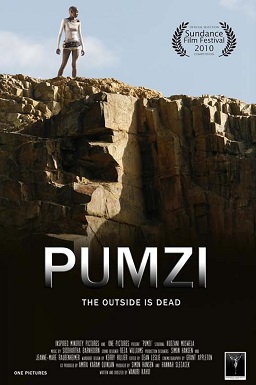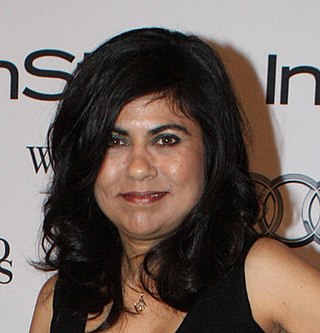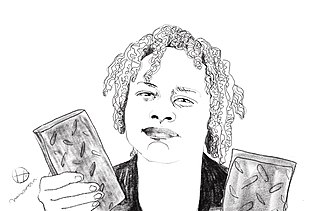Related Research Articles
James Clement Dooge was an Irish Fine Gael politician, engineer, climatologist, hydrologist and academic who served as Minister for Foreign Affairs from 1981 to 1982, Leader of the Seanad and Leader of Fine Gael in the Seanad from 1982 to 1987 and Cathaoirleach of Seanad Éireann from 1973 to 1977. He served as a Senator from 1961 to 1977 and 1981 to 1987.

Wangarĩ Muta Maathai was a Kenyan social, environmental, and political activist who founded the Green Belt Movement, an environmental non-governmental organization focused on the planting of trees, environmental conservation, and women's rights. In 2004 she became the first African woman to win the Nobel Peace Prize.

Marine debris, also known as marine litter, is human-created solid material that has deliberately or accidentally been released in seas or the ocean. Floating oceanic debris tends to accumulate at the center of gyres and on coastlines, frequently washing aground, when it is known as beach litter or tidewrack. Deliberate disposal of wastes at sea is called ocean dumping. Naturally occurring debris, such as driftwood and drift seeds, are also present. With the increasing use of plastic, human influence has become an issue as many types of (petrochemical) plastics do not biodegrade quickly, as would natural or organic materials. The largest single type of plastic pollution (~10%) and majority of large plastic in the oceans is discarded and lost nets from the fishing industry. Waterborne plastic poses a serious threat to fish, seabirds, marine reptiles, and marine mammals, as well as to boats and coasts.

The Great Pacific garbage patch is a garbage patch, a gyre of marine debris particles, in the central North Pacific Ocean. It is located roughly from 135°W to 155°W and 35°N to 42°N. The collection of plastic and floating trash originates from the Pacific Rim, including countries in Asia, North America, and South America.

Emily Rose Eavis is co-organiser of the annual Glastonbury Festival, and the youngest daughter of the festival's founder and organiser, Michael Eavis, and his second wife Jean.

Pumzi (transl. Breath) is a Kenyan science-fiction short film written and directed by Wanuri Kahiu. It was screened at the 2010 Sundance Film Festival as part of its New African Cinema program. The project was funded with grants from the Changamoto arts fund, as well as from the Goethe Institut and Focus Features' Africa First short film program which are also to distribute the work. Kahiu hopes to expand the short into a full-length feature. The film is in English, but the title is Swahili for "Breath".

Laila Rashed Iskander Kamel is an Egyptian social entrepreneur and politician. She is formerly Egypt's Minister of State for Environment Affairs in the interim government of Prime Minister Hazem El Beblawi.
Hima Cement Limited (HCL) is a cement manufacturer in Uganda. It is a subsidiary of the Sarrai Group, a diversified manufacturing conglomerate headquartered in Uganda with subsidiaries in Uganda, Kenya and Malawi.

Plastic pollution is the accumulation of plastic objects and particles in the Earth's environment that adversely affects humans, wildlife and their habitat. Plastics that act as pollutants are categorized by size into micro-, meso-, or macro debris. Plastics are inexpensive and durable, making them very adaptable for different uses; as a result, manufacturers choose to use plastic over other materials. However, the chemical structure of most plastics renders them resistant to many natural processes of degradation and as a result they are slow to degrade. Together, these two factors allow large volumes of plastic to enter the environment as mismanaged waste which persists in the ecosystem and travels throughout food webs.
Esi Awuah is a Ghanaian academic and former vice chancellor of the University of Energy and Natural Resources in Sunyani, Ghana.

Maria Cristina Finucci is an artist, architect and designer based in Rome. She is the founder of the Garbage Patch State.

Veena Sahajwalla is an inventor and Professor of Materials Science in the Faculty of Science at UNSW Australia. She is the Director of the UNSW SM@RT Centre for Sustainable Materials Research and Technology and an Australian Research Council Laureate Fellow.
The Garbage Patch State – Wasteland is an ongoing transmedia, environmental artwork by Maria Cristina Finucci. The project aims to raise awareness about the environmental hazard of the Great Pacific garbage patch caused by the dispersion of plastic debris in the oceans. Installations, performances, and videos have been carried out under the patronage of UNESCO and the Italian Ministry of the Environment.

Brianne West is a New Zealand environmentalist, entrepreneur and the founder of Ethique, the world's first zero-waste beauty brand. In 2016 she was named a "Global Thinker" by Foreign Policy magazine and in 2019 the EY Young Entrepreneur of the Year.

Reza Ardakanian is an Iranian professor, politician and former Minister of Energy of Iran, a position he had held from 29 October 2017 to 25 August 2021. He was previously deputy energy minister in the 1980s and 1990s and has been involved with UN-Water.
Miranda Wang, is the cofounder of Novoloop, which is a company that aims to turn plastic waste into high-performance materials that can be used in a variety of products. Novoloop's process has the potential to greatly reduce the amount of plastic that enters landfills every year, as well as the amount of CO2 that is emitted by commonly used methods of material production.

Ciiru Waweru Waithaka is a Kenyan serial entrepreneur who co-founded and is the CEO of FunKidz. She has been recognised as a role model as her company recycles timber in Kenya for school furniture. Her company empowers women and manufactures sustainable products.

Nzambi Matee born at the date September 19 1992, is a Kenyan trained mechanical engineer, environmentalist, hardware designer, inventor and serial entrepreneur. She is well known for her innovative and creative ways of converting waste into sustainable materials. She pioneered the sustainable efforts by recycling plastic to make bricks that can be even stronger than a concrete. Her sustainable efforts have also been hailed as one of the successful strategies to curb the plastic pollution in Kenya. She founded Gjenge Makers, which is based in Nairobi, Kenya.
Lorna Rutto is a Kenyan ecopreneur, and founder of Ecopost, a social enterprise that manufactures fencing posts and other products from recycled plastic waste in offering sustainable jobs to people in marginalized communities and solutions to Kenya's plastic waste challenge.
Tom Okia Okurut was a Ugandan climate change activist, conservationist, environmentalist, author, and policy maker. He was the former executive director National Environment Management Authority for 10 years since 2011 to 2021, and former executive director Climate Change Action East Africa.
References
- ↑ "Kenyan Scientist making headlines with ground-breaking initiative". Pulselive Kenya. 2019-12-14. Retrieved 2019-12-16.
- ↑ "Kenyan scientist uses throw-away plastics to build homes". www.aljazeera.com. Retrieved 2019-12-16.
- 1 2 "UNESCO-IHE Alumna Hope Mwanake delivers vision speech at World Water Week | IHE Delft Institute for Water Education". www.un-ihe.org. Retrieved 2019-12-16.
- 1 2 "Hope Wakio Mwanake". IREX. Archived from the original on 2019-12-16. Retrieved 2019-12-16.
- ↑ "Hope Mwanake "Think big, start small and start now!" | Water Youth Network" . Retrieved 2019-12-16.